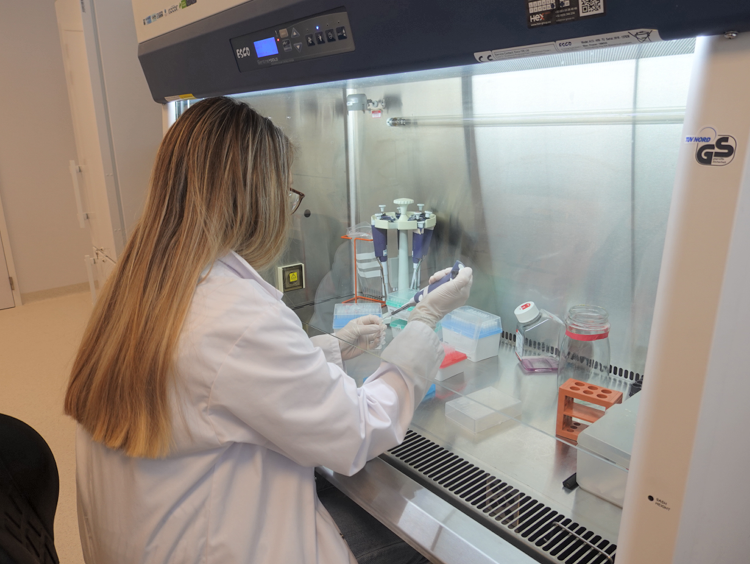Health problems
Cerabral Lymphoma

A cerebral lymphoma or brain lymphoma (also called primary central nervous system lymphoma or PCNSL) is a rare form of cancer that affects the lymphatic cells in the brain and/or spinal cord. The lymphomas develop directly in the central nervous system: initially, other parts of the body remain unaffected.
Cerebral lymphoma symptoms can vary depending on where the tumour is located in the brain. The most frequent symptoms are:
Persistent headaches
Behavioural or personality changes
Memory or concentration problems
Weakness or numbness in the arms or legs
Vision problems
Epileptic seizures
Nausea and vomiting
- The diagnosis of a cerebral lymphoma involves a number of stages:
- Magnetic resonance imaging to visualise the tumour.
- A lumbar puncture to take a sample of cerebrospinal fluid to test for cancer cells.
- A brain biopsy that consists of taking a tumour sample for an histological analysis at a specialised neurosurgical centre.
- The treatment of cerebral lymphomas can include a number of combined approaches:
- Chemotherapy: Medication taken to kill the cancer cells. Methotrexate is often used in high doses. Intensive chemotherapy with an autologous cell transplant can be recommended.
- Radiotherapy: The use of X rays or other types of radiation to destroy the cancer cells.
- Corticosteroids: Drugs that reduce inflammation and intracranial pressure.
- Immunotherapy or targeted therapy: The use of drugs to stimulate the immune system to combat the cancer.
- Follow-up and prognosis
After the initial treatment, regular follow-up is crucial to monitor remission and detect any return of the cancer. This can include clinical examinations, regular MRI scans and laboratory tests. The prognosis for cerebral lymphomas can vary widely. Progress in treatment has improved survival rates but each case is unique and requires a personalised approach. - Support and Resources
Living with a cerebral lymphoma can be difficult for the patient and those close to them. Here are a few useful resources:- On-line support and information groups: Joining a support group can help you to share experiences and obtain emotional support. Reliable websites such as those of the League Against Cancer or of patients’ associations provide information and practical advice.
- https://cancer.be/cancer/cancer-du-cerveau/
- https://alwb.be/
- https://www.kanker.nl/kankersoorten/lymfeklierkanker
- https://harvey-cushing-center.be/fr/ - The psycho-oncology services can provide specialised psychological support.
- https://www.bordet.be/fr/psychooncologie
- https://www.psycho-oncologie.be/
- On-line support and information groups: Joining a support group can help you to share experiences and obtain emotional support. Reliable websites such as those of the League Against Cancer or of patients’ associations provide information and practical advice.
Cerebral lymphoma is a serious disease but with an early diagnosis and the right treatment many patients can gain a remission and lead a quality life. It is essential to remain informed and maintain open communication with the medical team to navigate the bst pathway through this disease.
The Jules Bordet Institute is recognised as an expert centre for diagnosis, treatment and research in the field of cerebral lymphomas by EuroBloodNet. Located in a university hospital, it proposes advanced research with MRI, PET scans, chemotherapy, radiotherapy and immunotherapy. Active in clinical research, the centre participates in innovative trials proposing experimental treatment.
- https://eurobloodnet.eu/members/experts/search/?DiseaseForm[disease]=227#results
- https://www.reseauloc.org/lymphome
Associated publications:
- https://www.bjh.be/journal-article/bhs-guidelines-for-primary-central-nervous-system-lymphoma/
- https://pubmed.ncbi.nlm.nih.gov/35953526/
Virginie De Wilde (Haematology)
Marie Vercruyssen (Haematology)
Florence Lefranc (Neurosurgery)
Johanne Garbusinski (Revalidation)
Neurosurgery
Neurology
Outpatient and hospitalisation revalidation
Ophthalmology
Radiology